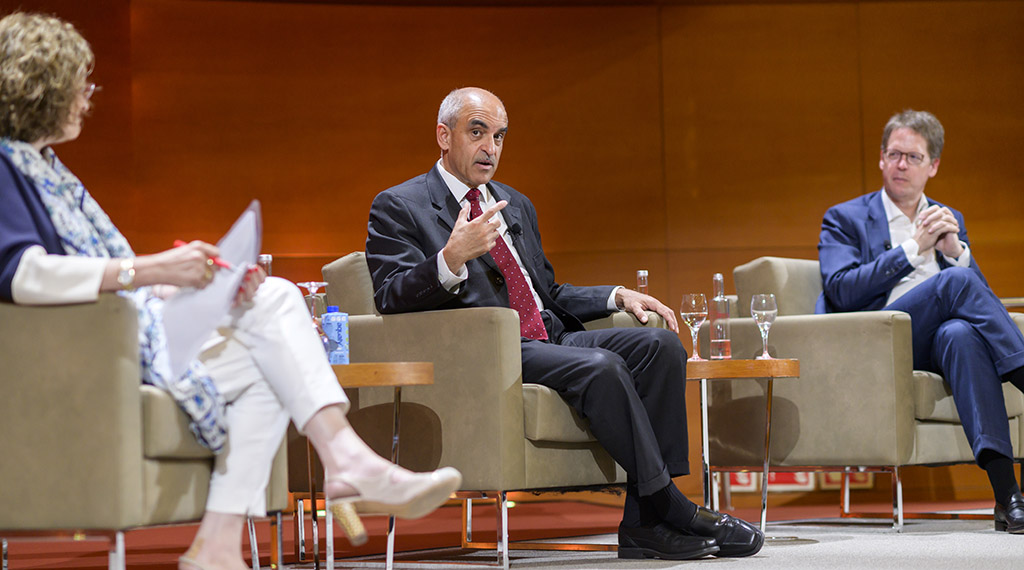Stories
Can Healthcare Be Sustainable, Innovative and Patient-Centered?
24 IESE Healthcare Industry Meeting looks at how technology is changing sector
October 30, 2017

Everyone wants innovative, high-quality healthcare. But that comes at a cost, and who will pay for it?
The 24th Healthcare Industry Meeting held on the Barcelona campus recently looked at sustainability in healthcare from a variety of angles, from pricing of new drugs, to more efficient insurance coverage, to targeted use of patient data, to extracting system-wide efficiencies.
Much of the sustainability debate in the sector revolves around the gap between how much providing care costs and how much people are willing or able to pay for it. For most of the speakers, that gap is an inevitable part of the sector. “There will always be tension between innovation and access,” said Joaquín Duato, worldwide chairman of pharmaceuticals for Johnson & Johnson.
The pharmaceutical industry is a prime example of the sustainability debate. Countries are eager to attract pharmaceutical companies because they generate skilled jobs, foment research, and contribute to social well-being. But at the same time, governments and the public are often critical of pharmaceutical companies because they feel the price of drugs is too high.
Duato noted that companies such as Johnson & Johnson invest enormous amounts in research, not only in developing new drugs but also in areas such as cell therapy, gene therapy and disease inception. There are more than 7,000 new medicines in the global pipeline, he estimated.
The average cost to develop an approved medicine is about $2.6 billion, and
the private sector, in particular pharmaceutical companies, provide two-thirds of funds for research in the sector, with the remaining one-third coming from governments. If pharmaceutical companies don’t recover some of the cost through pricing and sales, innovation and research will be impossible.
Rising Incomes May Help Sustainability
That means that sustainability in the sector will always involve back-and-forth among patients, healthcare companies and governments. The challenge is finding the best formula to share costs, which isn’t easy.
For Prof. Núria Mas, sustainability in terms of financial resources may not be as urgent a problem as some think. With income levels rising in most countries, there is a trend to spend more on healthcare. As people spend more, they will demand more results. Prof. Mas thinks that the most pressing issues facing healthcare systems, at least in the near term, are the need to:
- Develop a strategic plan, which involves considering questions such as what the system’s priorities and goals are
- Diagnose sustainability challenges, in order to take measures such as identifying gains in efficiency and establishing early-warning systems for possible health crises
- Create treatments to foster sustainability, by looking at issues such as expanding practice guidelines and leveraging technology
Patients Always at Center
As in all sectors, technology is having a transformational impact on healthcare, whether it’s making available unprecedented levels of information on patients and their ailments, or speeding up the pace of innovation.
But the speakers agreed that technology is only useful in the sector if it serves to improve the patient experience.
According to Miquel Montero, CEO of Atomian, which develops technological tools for the healthcare sector: “As much as technology advances, the cure will continue to be the relationship between doctor and patient, and the human factor will not disappear. In the future, machines must speak our language, including non-verbal language, always at the service of people and not the reverse.”


